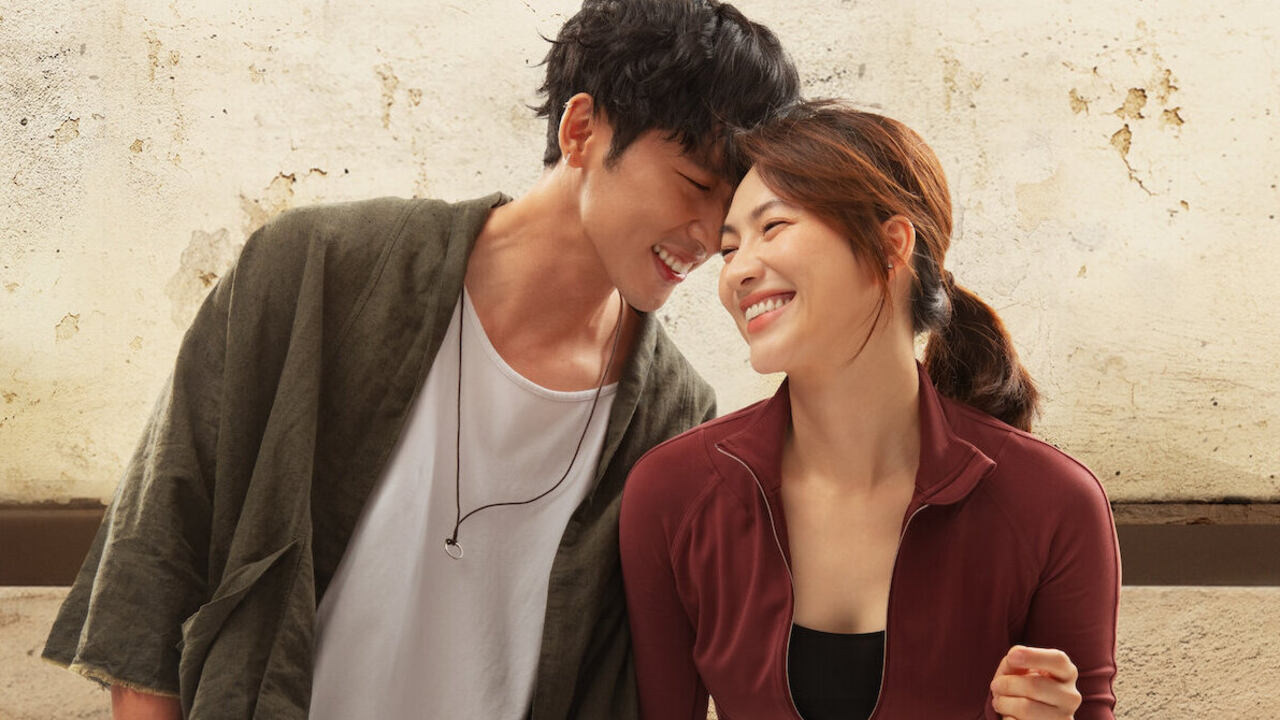
Director Tran Thanh is a man of style. He goes for first-person shots, canted angles, and "cool" editing tricks to embellish Mai, a drama/romance for people who go to movies to be spoon-fed. It quickly becomes apparent that style is the only substance for Thanh. He does things because he finds them, um, awesome. There is no logical reason behind his choices. There are moments in Mai where we see the world through the eyes of the characters (literally). Why? Because Thanh can show us the surroundings in first-person mode. This is why he, at one point, gives us the POV shot of a harasser. It's one of the dirtiest things you will see in a film. Thanh also shows us things through the eyes of the titular character, played by Phuong Anh Dao, though not for the purpose of establishing a connection between the viewer and the protagonist. The director just finds it attractive.
Thanh's style is superficial. He is a ringmaster who introduces various (cinematic) tricks to the audience. Hence, he doesn't merely show us Mai cleaning her rooms. He intersperses this act with Duong (Tuan Tran), a neighbor, having sex. This creates a thrusting rhythm, which might as well be Thanh's way of saying, "Hey, editing can be fun." He plays with the tools like a kid playing with his toys. At first, you laugh at these techniques that look ridiculously ostentatious. But after a while, you find yourself trapped within the confines of a film that indulges in lazy button-pushing. In Mai, every scene envelops you forcefully, and completely. The emotions are rendered simple to the point that you feel as if Thanh has made a movie for ten-year-old kids. The scenes are pushed towards you aggressively. The happy moments scream at you to be happy. The light-hearted moments tell you to laugh, and the sad scenes order you to cry.
Thanh doesn't trust the story to do its magic. But then, you can't blame him when the story itself seems so trifling. Mai rings the bells of women's empowerment with regressive thinking. The female character earns lots of cash and becomes the owner of a spa (or is it a resort?). Still, she cries because she doesn't get the boy. Mai gives us a strong, independent woman who works hard, earns money, and single-handedly takes care of her daughter. But we are made to believe that her life is incomplete because she doesn't have a boyfriend or a husband. A lonely woman attracts unwanted attention. The neighbors gossip about Mai or make her life hell by throwing garbage outside her doorstep. However, when Mai and Duong get together, we don't see the women making any trouble (we merely receive a brief shot of them peeking inside Mai's home when Duong is with her, and that, too, is treated with humor). Once Mai and Duong break up, we once again see the neighbors harassing the former character, and it's no longer seen as a comic situation.
Why are these other women in the apartment so jealous of Mai? Is it because of her independence? Or do they find her job as a masseuse too scandalous? Mai offers vague indications. It mostly provides us with cartoon villains with punchable faces and thin motivations. Take Trinh (Kha Nhu), for instance. She is irked by Mai's presence because Mai draws all the clients towards her. This rivalry merely exists for that "rousing" scene where Mai physically attacks Trinh. All the bad characters have the shallow function of "liberating" Mai from her role of a mute observer. The movie, with its pre-planned responses, pushes the right button at the right moment to evoke the desired reaction from the audience. Everything is thinly constructed and predetermined.
No wonder a friend converts into a foe. Why? So that the movie can create complications and move forward. Mai and Duong make a deal that they will wait for each other, but when we meet them after four years, we observe that the latter has married a young girl. Was Duong forced to marry this girl? Did he give up on his love? Were his feelings for Mai so feeble? Again, the movie doesn't give us a clear answer. Thanh chooses this ending to create a tearjerker. He is simply interested in eliciting reactions from us. You think that by giving us a romance between a young boy and a mature girl, the movie is aiming to break traditional notions. But this ending reinforces the idea that an age-gap union is just not possible. And by making Mai wait for, and letting her shed tears over, a boy, the film accentuates that no matter how strong or financially independent a woman becomes, she will always yearn for a man to hold her. Thanh has basically made a progressive film with a regressive stance.
Final Score- [3.5/10]
Reviewed by - Vikas Yadav
Follow @vikasonorous on Twitter
Publisher at Midgard Times
Get all latest content delivered to your email a few times a month.
Bringing Pop Culture News from Every Realm, Get All the Latest Movie, TV News, Reviews & Trailers
Got Any questions? Drop an email to [email protected]
Information you can trust:
Reuters, the news and media division of Thomson Reuters, is the world’s largest multimedia news provider, reaching billions of people worldwide every day, Sign up for our free daily newsletter: [email protected]